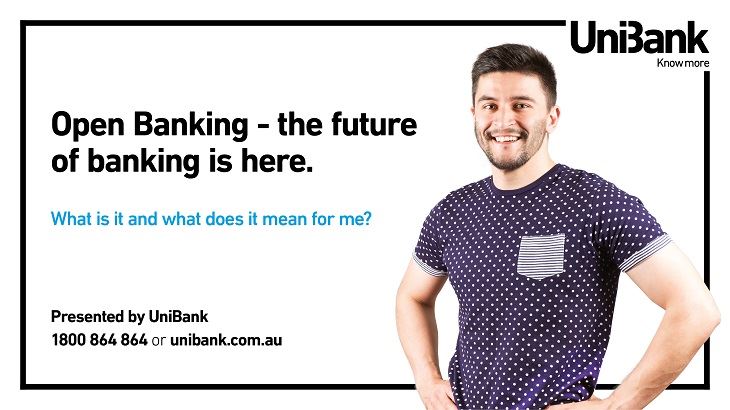
What is open banking?
Over the last few years, open banking has been predicted to be the next big thing, giving everyone vastly increased control over how their financial data is used. And it’s here now.
The demand for easier access and better control over our money isn’t new. Recent attempts to bring about this change include the Facebook Payment functionality through Messenger (2015) and the PayPal subsidiary Venmo, which simplifies the process of paying and receiving money from your friends and family.
Introduced last year, the Comprehensive Credit Reporting scheme gives everyone a better indication of their credit history and borrowing power. But the introduction of open banking in Australia offers an even larger shift in how we access and control our financial data.
.Know more.
Having already gained traction in the United Kingdom, European Union, the United States and Singapore, open banking is set to revolutionise the way we manage our finances in Australia.
According to the Customer Owned Banking Association (COBA), “Australian consumers are set to gain unprecedented access and control of their personal financial data as the Australian Government and banks continue the roll out of the open banking system.”
So, what is open banking?
In simple terms, open banking is the free flow of financial data from one organisation to another. The data is controlled entirely by the consumer, which means everyday Australians will be able to decide which companies, third party Apps and financial institutions have access to their information and how it’s used.
All authorised deposit-taking institutions (ADI’s) have been part of the rollout. Other companies such as App developers and Fintechs (financial technology) will need to be accredited, adhering to strict security and privacy standards before they can join the open banking revolution.
While the full range of possibilities are still being explored, some early examples of how open banking can benefit you include:
· Comprehensive data sharing with a range of budgeting apps to help you keep on top of your spending
· More complete data sharing with accountants and financial planners to improve the quality of advice and assist in the preparation of your tax return
· Full portability of your transaction history when opening an account at a different bank, creating a lifelong financial imprint
· A more complete understanding of your financial data, helping you to make informed financial decisions and find the products and services that are most suitable for you
· Improved oversight to help banks and other financial institutions create products and services that are more suited to your specific needs
Improved privacy and security
Legislation has recently been passed through government requiring all financial institutions to make your credit and debit card, and deposit and transaction data available. Mortgage and personal loan data will follow in 2020, with data for all banking products being made available by 2021.
This staggered approach is designed to give all affected organisations time to implement policies and procedures so that consumer data is handled correctly and in line with the new, much stricter security guidelines. The recent Consumer Data Right gives consumers the option to choose how their data is shared, and with who. Only organisations that you authorise to access your data will be able to do so, and only for the purpose you specify.
Now that it’s here, do we actually want it?
While certain sectors have welcomed the idea of open banking, a 2016 survey commissioned by COBA found that only 42 per cent of everyday Australians are interested in the benefits of open banking. Nearly a quarter of those surveyed were opposed to the idea, although the younger demographics are much more receptive.
With data privacy dominating the news in recent times with Facebook and others being under intense media scrutiny over leaks and data breaches, there’s little wonder that so many people are sceptical about anything that proposes the free flow of personal information.
Because of the increased access to our own financial data and greater competition among established financial institutions, COBA has spoken out in favour of open banking. COBA has stated that the adoption of open banking by customer-owned banks is “a natural fit” because of the industry’s customer-first approach to developing and delivering financial products and services.
UniBank is a division of Teachers Mutual Bank Limited ABN 30 087 650 459 AFSL/Australian Credit Licence 238981.
Membership eligibility applies to join the Bank. Membership is open to citizens or permanent residents of Australia who are current or retired employees, students and graduates of Australian universities or family members of members of the Bank.
UniBank is a Silver Sponsor of YSC2019.
